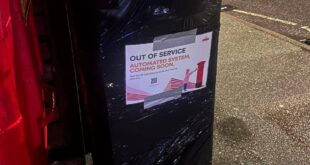The vaccine trades driving Lloyds Banking Group (LSE:LLOY) and BP (LSE:BP.) higher at the expense of Novacyt (LSE:NCYT) and Ocado (LSE:OCDO)continued today as investors scrambled to position themselves for a post-Covid world.
The bombed-out shares of Rolls-Royce (LSE:RR.), BA owner International Consolidated Airlines Group (LSE:IAG) or catering giant Compass (LSE:CPG) were again obvious targets for bargain hunters in the FTSE 100 index, with previous lockdown winners such as second-tier Domino’s Pizza LSE:DOM on the back foot.
The vaccine hopes and associated trends have also sharpened the focus on the potential value of some of the UK’s most widely-held stocks, including BT (LSE:BT.A), Centrica (LSE:CNA), Royal Mail (LSE:RMG) and Marks & Spencer (LSE:MKS) after a turbulent performance during the pandemic.
This week’s rapid adjustment in share prices aside, investors still have little idea about how far the pandemic will have changed consumer behaviour or demand trends. Will air travel return to the levels seen before Covid-19 and will the trading boost for online retailers, gambling companies or video gaming specialists continue once life returns to normal?
Analysts at Jefferies and Peel Hunt have attempted to anticipate some of the biggest winners and losers from the vaccine relief rally. An obvious starting point is the banks after a disastrous year in which the sector even underperformed the more heavily impacted Covid areas such as travel and leisure and oil and gas.
Earnings per share estimates for 2022 have fallen 24%, but with a vaccine breakthrough there are hopes for greater visibility on credit costs and a steeper yield curve as interest rates recover.
Rising unemployment remains a significant concern but Peel Hunt sees considerable upside for Lloyds and the other UK banks once the current environment is de-risked. Its favoured pick, however, is Virgin Money as its valuation multiples are particularly attractive even at the lower level of medium-term returns.
The broker also highlighted Paragon (LSE:PAG), which has underperformed its peers despite having exposure to higher quality areas like buy-to-let. Amongst the specialist lenders, Morses Club (LSE:MCL) and Provident Financial (LSE:PFG) are seen as potential beneficiaries.
Peel Hunt said:
“Although both have adapted to the new remote way of working, the Home collected part of the business model will benefit from both agents and customers returning to normal daily activity.”
In the retail sector, Jefferies favours Marks & Spencer (LSE:MKS) and Primark owner Associated British Foods (LSE:ABF) as both are weighted towards high street activity. M&S should also benefit from a recovery in office-related lunch business and improved demand at its Simply Food stores in railway stations and motorway service areas.
A return to normality would also be good news for Greggs (LSE:GRG), which has been hit by a lack of footfall and social distancing requirements. Peel Hunt said:
“We don’t see volumes rebounding overnight but there is nothing wrong with, nor any lasting damage done to the brand: it is a well-run, growth business.”
The broker thinks that WH Smith (LSE:SMWH) will be a stronger business on the other side of the virus, while a return to normal should trigger a material increase in earnings per share expectations for support services pair Johnson Service Group (LSE:JSG) and John Menzies (LSE:MNZS).
The shift online caused by the pandemic has benefited Dunelm (LSE:DNLM), AO World (LSE:AO.), Boohoo (LSE:BOO), Naked Wines (LSE:WINE) and Gear4music (LSE:G4M), but the fact that consumers may soon be returning to the high street shouldn’t reverse their relevance, according to Peel Hunt.
The broker said:
“AO is likely to end this year with 50%+ growth in active customers, a level of growth that will likely support a level of repeat purchasing that exceeds market expectations of 7-8% revenue growth next year. Similarly, Dunelm is also taking market share and building out its active customer base, which will support ongoing sales levels.”
Domino’s Pizza is rated at underperform by Jefferies as consumers gain more confidence around eating outside home, with the broker having Jet2 (LSE:JET2) as one of its picks in the travel and leisure sector even though the holidays specialist may have to wait until 2024 for sales recover to last year’s level.
Peel Hunt, however, has doubts about the air travel industry as higher yielding business demand is likely to be partially substituted by technology such as video calling and as elderly passengers are less likely to travel even if they’ve been vaccinated.
It advises selling into any rally for Ryanair (LSE:RYA) and Wizz Air (LSE:WIZZ), adding:
“We remain sceptical that a vaccine can be administered to enough people in the UK and internationally ahead of the summer 2021 season and that demand will bounce back sufficiently fast.”
The broker is more optimistic about the potential for FirstGroup (LSE:FGP) should the re-opening of schools finally allow it to sell its North American transport operation. Pent-up demand and the potential to expand also make Hollywood Bowl (LSE:BOWL) and Ten Entertainment (LSE:TEG) attractive stocks.
In the utilities sector, Centrica (LSE:CNA) shares were down 45% between March and yesterday’s vaccine announcement due to lower power prices, weaker demand and increased bad debts.
Jefferies is optimistic for a recovery and has an outperform rating on the stock, believing that this summer’s disposal of its US business for £2.85 billion could see Centrica exit a period of turbulence in a better position than it started due to a much-strengthened balance sheet.
The broker is also hopeful for a BT (LSE:BT.A) recovery after a 30% fall in shares since mid-February. It said: “A Covid-19 vaccine would address the main overhang depressing sentiment, which is that withdrawal of government support will drive SMEs out of business on a significant scale.
“It could also refocus attention on positive developments, such as regulatory progress or M&A approaches.” Trading on a sector average 6.1x FY22 earnings could see BT shares back to about 158p, compared with 110p after today’s 4% improvement.
Royal Mail (LSE:RMG) shares have risen sharply since September but Jefferies thinks the stock is likely to underperform in the event of a vaccine as parcel volume growth slows from 34% in the past five months to a more normal level of about 5%. At 19 times 2021 earnings, it sees Royal Mail as the most expensive postal stock.
There’s also a more uncertain outlook for the healthcare sector, with stocks more likely to underperform as investors rotate into cyclical recovery stocks. Peel Hunt sees PureTech Health (LSE:PRTC), Syncona (LSE:SYNC) and Silence Therapeutics (LSE:SLN) as among those least likely to be affected by the wider fluctuations in the economy, while Spire Healthcare (LSE:SPI) looks to be well placed as a crucial partner in helping the NHS reduce waiting lists.
These articles are provided for information purposes only. Occasionally, an opinion about whether to buy or sell a specific investment may be provided by third parties. The content is not intended to be a personal recommendation to buy or sell any financial instrument or product, or to adopt any investment strategy as it is not provided based on an assessment of your investing knowledge and experience, your financial situation or your investment objectives. The value of your investments, and the income derived from them, may go down as well as up. You may not get back all the money that you invest. The investments referred to in this article may not be suitable for all investors, and if in doubt, an investor should seek advice from a qualified investment adviser.
Full performance can be found on the company or index summary page on the interactive investor website. Simply click on the company’s or index name highlighted in the article.
Source link



